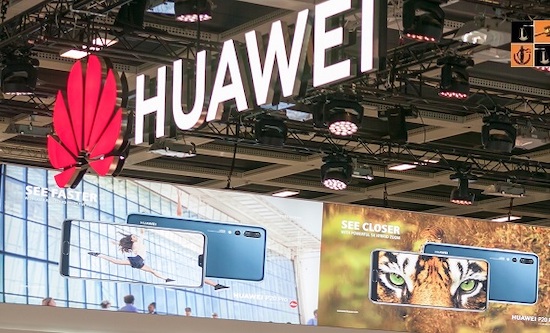
In April 2020, the British government blocked a Chinese firm, China Reform, from taking control of the Apple iPhone chipmaker Imagination Technologies, based near Watford, and in July banned the Chinese company Huawei from contributing to Britain’s 5G telecommunications network. On 11 November, the government announced the National Security and Investment Bill to ‘target potentially hostile foreign investments’; the main target is China. Then, on 24 November, the government presented its Telecommunications (Security) Bill, intended to force the likes of BT, Vodafone and Three to get rid of any Huawei software, routers or antennas they use by 2027. This reverses a previous government policy of allowing companies to keep existing Huawei equipment but preventing them from buying anything new from the firm. Conservative and Labour politicians are joining the US anti-China campaign.
A new Investment Security Unit is to be established within the Department for Business, Energy and Industrial Strategy, to review potential foreign investments and takeovers. Companies that do not comply and fail to report to the Unit could be fined up to 5% of worldwide turnover or £10m (whichever is highest) and executives face up to five years’ imprisonment if the bill becomes law.
In 2015, Conservative Chancellor of the Exchequer George Osborne said, ‘No economy in the west is as open to Chinese investment as the UK’ (see ‘Britain: “a vassal of the US”’ FRFI 277). Rather than invest in Britain’s infrastructure itself, the British government opened it up to foreign investment. The stock of foreign direct investment (FDI) in the UK in 2019 was $2.17 trillion, a sum equivalent to over 73% of GDP, compared with $449.5bn in 2000, equivalent to 26.5% of GDP (UNCTAD World Investment Report 2020). Consequently, over 70% of the shares in England’s nine privatised water companies are held by overseas firms and most of Britain’s rail franchises are run by foreign businesses.
Chinese ownership accounts for 38% of Britain’s gas distribution network and 24% of electricity distribution. China is the largest operator in North Sea oil, through the China National Offshore Oil Corporation, which accounts for more than 25% of Britain’s oil production and 10% of the country’s energy needs. China General Nuclear Power holds a 33.5% stake in Hinkley Point C nuclear power plant construction in Somerset and was given a 20% stake in Sizewell C nuclear power station in Suffolk for its contribution to Hinkley. It was also given the opportunity to build its own nuclear reactor in Bradwell, Essex, which would be the first Chinese-built nuclear power plant outside of China. China’s Huaneng Group is building Europe’s largest battery storage project in Wiltshire (New Statesman 13 July 2020). Hong Kong-based MTR holds a 30% stake in South Western Railways and has been awarded the franchise for London Crossrail. The China Investment Group owns a 10% stake in Heathrow airport and 9% of Thames Water. All of this is FDI. Without foreign investment, including Chinese investment, Britain’s infrastructure would collapse.
When the Telecommunications (Security) Bill is passed, Ofcom, the telecoms and media regulator, will be empowered to conduct spot checks on companies’ equipment and documents. Any company that has not weeded out all its Huawei equipment could be fined 10% of its revenue or £100,000 a day. The Labour Party will not oppose this drive to ban Chinese investments; Shadow Foreign Secretary Lisa Nandy said, ‘We’ve been going ahead with Chinese investments without regard for national security for too long.’
However, senior City figures are nervous about sending threatening signals to China. Sir Mike Rake certainly qualifies as a senior City grandee: a director of S&P Global, former chair of KPMG International, former president of the CBI, former chair of BT Group, former deputy chair of Barclays and, no less, a board member of Guards’ Polo Club. Since April 2020, Rake has been on the board of Huawei. Rake cautioned, ‘Post-Brexit it is even more critical that we have to be open to trade and inward investment.’ By moving to block Chinese investments in Britain, the government has joined the other members of the Five Eyes military intelligence alliance: the US, Canada, Australia and New Zealand. Such is the path to ‘becoming an offshore centre for usury capital under the umbrella of US imperialism’ (‘Brexit: ruling class deadlock’, FRFI 268).
Trevor Rayne




